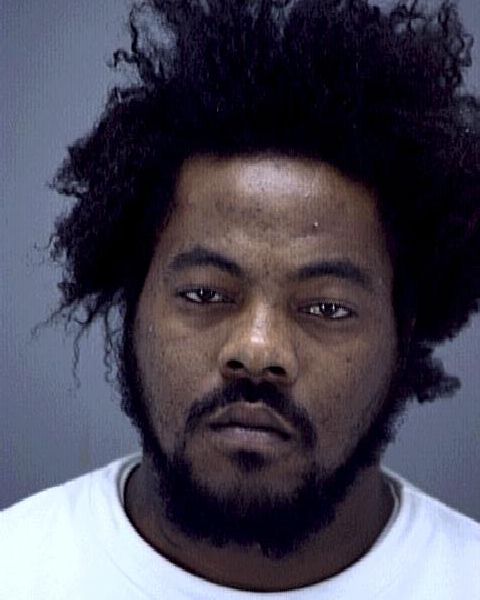After two days of testimony and arguments, U.S. Magistrate Judge Bill Carter summarized a court hearing's key issue with one question.
If police can arrest one drug dealer but want to arrest more people -- the dealer's suppliers and the dealer's dealers -- can they get a wiretap?
Carter listened Friday as an attorney for Joe Jenkins asked him to throw out evidence against her client obtained through a wiretap. She said police overstepped Jenkins' constitutional rights when they listened to his phone calls.
Attorney Leslie Cory argued that police could have just arrested Juanzell Jenkins, Joe's brother, back in 2009, when they had evidence pointing to him as a prominent cocaine dealer.
Instead, police used that evidence to get a wiretap on Juanzell Jenkins and heard him talk to Joe Jenkins on the phone, supposedly about selling drugs.
Police arrested Juanzell Jenkins, Joe Jenkins and 32 other men who investigators say were part of a cocaine conspiracy in November 2013.
But Cory told Carter on Friday that police didn't need wiretaps to do that. They could have followed Juanzell Jenkins around town and recorded him selling drugs to informants. They could eventually have arrested Juanzell and pumped him on who he bought drugs from.
Cory's point: Because police could have arrested Juanzell without a wiretap, they should not have listened to his phone calls.
That was the key point of Jenkins' motion to suppress heard in U.S. District Court on Thursday and Friday. Cory said the drug conspiracy that police ultimately uncovered was not a widespread operation. Two suppliers from Atlanta are accused of selling cocaine wholesale to Juanzell Jenkins, who in turn is accused of selling drugs to other people.
"Whenever they pursued normal investigative techniques," Cory told Carter, "they had success."
But Carter asked the attorney, "If they are trying to get, in addition, information about the sources of supply ... are they prohibited from getting a wiretap?"
Carter can take as much time as he likes to decide whether the wiretap evidence against Joe Jenkins should be thrown out.
Joe Jenkins is not the first defendant in this conspiracy case to raise these objections. In June, an attorney for Jumoke Johnson Jr. argued to Carter that Chattanooga police officer and Drug Enforcement Administration agent James Hixson wrote "sloppy" warrants, and that the wiretap itself might have been illegal.
Carter ruled against Johnson, saying he did not find anything wrong with the wiretaps. Johnson pleaded guilty Sept. 8 to conspiracy to distribute drugs.
On Friday, Assistant U.S. Attorney Christopher Poole said Cory was wrong, that police could not have uncovered the drug operation without a wiretap.
Poole conceded that police could have arrested Juanzell Jenkins based on the evidence they had in 2009. But they were trying to arrest others, too.
Cory made other arguments on behalf of Joe Jenkins on Friday. She said the judge who signed off on the warrant did not first read the document thoroughly enough. She said police did not show enough discretion when they listened in on calls once they got the wiretap.
She also said the wiretap warrant indicated police listened for 32 days, two days longer than allowed. Johnson's attorneys made the same argument to Carter three months ago, and prosecutors have asserted this was merely a writing error.
But Cory returned to the issue of the wiretap itself. She said this is her strongest argument: The police did not have any reason to listen to those phone calls.
"If that met the necessity requirements," she told Carter, "almost anything meets the requirements."
Contact staff writer Tyler Jett at timesfreepress.com or at 423-757-6476.

